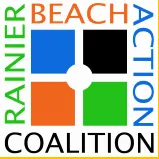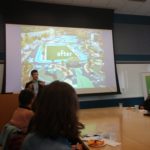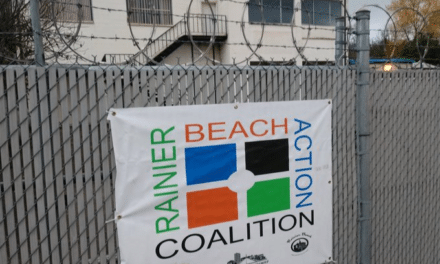Now that the 2021 farm stand season has officially dwindled down, the farm stand team has been using this newly freed-up time to reflect on previous years operations, and how we can make the next season an even better one. A large chunk of this process has consisted of reviewing new grants and funding opportunities for RBAC to take on. As we’ve gone through and read these grant requirements, the largest question that has popped up in our discussions is this: What can we do differently than what we’re already doing? These are a couple of ideas that we came up with:
- Having the farm stand more than 1x a week
- Operating in the late afternoon/evening rather than the morning
- Distributing produce from multiple sites
Regarding the first point mentioned above, we realized that for some families, receiving 1-2 bags of fresh produce only once per week may not be sufficient for their household’s needs. Some families have extended relatives living with them, or maybe they have a lot of kids. Either way, they will still need to make multiple grocery trips per week and those expenses can add up quickly.
When it comes to the time of day that we run the farm stand, we’ve always done it in the morning, starting at 10am and normally finishing off around 12-1pm. Although we still have a great turnout around these hours, the realization came up that some people may have work or other commitments in which they won’t be available until later in the day. We want to make sure those people still have the opportunity to check out and receive produce from our stand, at a time that may be more convenient for them.
Our final concern is the location that we operate the farm stand in. Throughout the history of our stand, we operated at the Ethiopian Community Center in 2018-2019, the Rainier Beach Plaza in 2020, and our Food Innovation Center in 2021. During all these years, we chose one location to operate in and stuck with it for the entirety of the season. But what if we operated at 2 sites within a season, instead of 1? Although there are still tons of logistics to figure out, the main priority here is reach, and spreading the word to as many potential patrons as possible who would like to benefit from our services. Other partners we could collaborate with to do this work include Black Farmers Collective (YES Farm), Beet Box/HOSTED located in the Othello/New Holly area, and Nurturing Roots Farm in Beacon Hill. These neighborhoods mentioned aren’t too far from our original site in Rainier Beach, but still unfortunately face the impacts of food insecurity.
While none of these ideas have been set in stone yet, these brainstorming sessions have truly allowed us to think outside the box and about the ways we can expand the work we do in South Seattle not only for this upcoming season, but also for future years to come.







